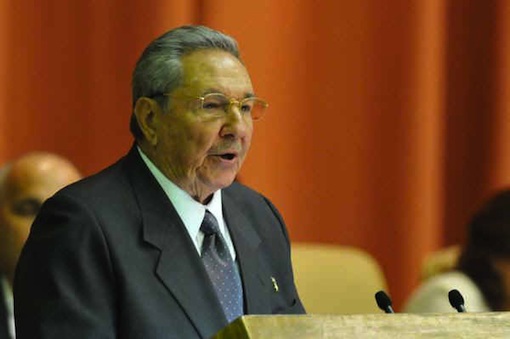Above: Raul Castro (Photo: AIN Cuba)
By the Caribbean Journal staff
Cuba President Raul Castro, who was chosen to serve a new term Sunday, will be leaving politics in 2018 when this term expires, he announced.
The announcement came after Cuban delegates chose a new President of the National Assembly for the first time in nearly 20 years, with Esteban Lazo succeeding Ricardo Alarcon.
“This decision is of particular historic significance because it represents a defining step in shaping the future direction of the country through a gradual and orderly transfer to the new generation of principal offices,” he said. “[It is a process] that we must realize in five years.”
Stepping down in five years, he said, “will be the last command.”
If Castro holds true to his words, it would mark the first time since 1959 that a member of the Castro family had not ruled the Caribbean nation.
The man who could one day succeed Castro is Miguel Diaz-Canel, who was elected as First Vice President of Cuba’s State Council on Sunday.
Castro pointed to Diaz-Canel’s 30 years of public service, from military service in anti-aircraft missile units to teaching at the faculty of electrical engineering at the Central University of Las Villas.
Diaz-Canel has served as Minister of Higher Education and, since 2012, as vice president of the Council of Ministers in charge of agencies involved in education, science, sports and culture.
While Castro has slowly begun to engineer reforms to Cuba’s communist model, in a speech Sunday he said that the direction for updating the Cuban economic model aimed to “achieve a sustainable and prosperous socialist society, a society less egalitarian, but more fair.”
“These principles underlie the formation of a development programme until 2030 in preparation,” he said.
“To those who, inside our outside the country, with good or bad intentions, encourage us to go faster, we tell you that we will continue to slowly but surely,” he said.
But among the changes most significant would be a maximum of two consecutive five-year term for the main offices of state and government, he said.
